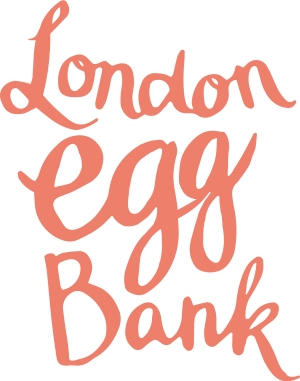FAQ
FREEZE AND SHARE

Ask Us Anything About Freeze and Share programme
What are the criteria to be accepted for the Freeze and Share programme?
To join our Freeze and Share programme, you need to meet a few key criteria: you should be between 21 and 33 years old, have a Body Mass Index (BMI) between 18 and 28, and possess a good ovarian reserve. Additionally, knowing the medical history of both sides of your family is crucial. This helps us ensure that you’re suitable to be a donor and maximize the benefits if you’re considering freezing your eggs.
How many eggs do I need for my own use?
This is a very common question and one that is difficult to answer. Put in the simplest terms, the more eggs you bank, the higher your chances of a pregnancy at a later date.
What if I change my mind and don’t want to share?
What is egg freezing?
Why would I consider preserving my eggs?
- You aren’t ready to start a family now – for relationship, health, career, financial, or any other reason – but you wish to have this choice in the future.
- You really have no idea if you might want a family someday – but you wish to keep that option open.
When should I freeze my eggs?
How does egg freezing address the business of ageing?
If I’m using on birth control, do I need to stop in order to freeze my eggs?
How do I know if I’m a good candidate for egg freezing?
As an initial step in the egg freezing process, you’ll have a fertility health check to gather information about your fertility and your overall health. Then, in a consultation, one of our consultants will review how effective egg freezing might be for you.
How do I get started?
How many times can I freeze my eggs with the "Freeze and Share"package?
How long does the Freeze and Share process take?
What can I expect during the egg freezing process?
The whole process, from the beginning of the injections through to the retrieval, is called a “cycle.” Find out more.
How are the eggs retrieved?
Is the egg freezing procedure painful?
How long does it take to recover from the egg retrieval?
What are the risks of egg freezing?
How many eggs will be collected on average in one cycle?
Am I likely to need more than one egg-freezing cycle to preserve enough eggs?
That really depends on a few things, especially your age. Generally, the younger you are, the more eggs you’re likely to freeze in one cycle. Younger women also tend to produce genetically healthier eggs, so they might not need as many cycles to begin with. Many younger women achieve their egg-freezing goals with just one cycle, while older women often need a few more tries. When you come in for your fertility health check, our doctors will give you a clearer picture of what to expect based on your specific situation.
Can I share all my eggs if I decide not to use them?
How long I can keep frozen eggs in storage?
How will I use my frozen eggs when I am ready to get pregnant?
If I’m not accepted can I be refunded the cost of the fertility screening tests?
Can I have a copy of all my results?
How are you regulated?
How many eggs should I aim to freeze?
- Women under 35: freezing 15 mature eggs offers a cumulative 85% chance of at least one live birth.
- Women 35 to 37: freezing 20 mature eggs offers a cumulative 80% chance of at least one live birth
- Women 38 to 40: freezing 30 mature eggs offers a cumulative 75% chance of at least one live birth.
- Women 40 to 42: freezing 30 mature eggs offers a cumulative 50% chance of at least one live birth.
Get Started
You can request more information or book a free consultation with our Treatment Coordinator. This initial consultation is part of the treatment process and will guide you through each step, answer your questions, and help you explore all your options.
Select Booking Slot
Choose your preferred date below:
Your Appointment Has Been Booked
Your slot is:
Thank you for booking with us.
